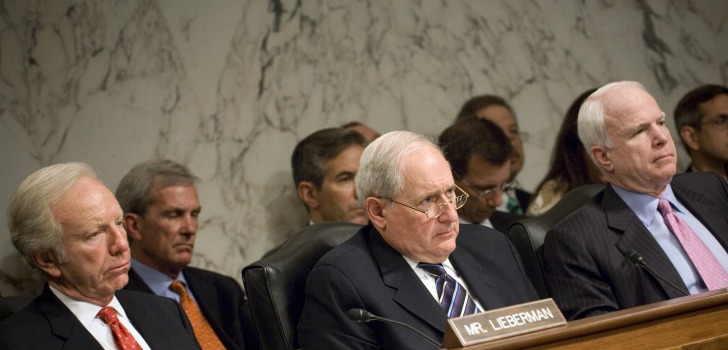
Last year, bipartisan legislation designed to curb patent trolls got stuck in a Senate bottleneck, with then-Judiciary Chairman Patrick J. Leahy of Vermont saying he was “furious” with his fellow Democrat, then-Majority Leader Harry Reid, for keeping the bill off the floor.
Knowing Reid would no longer control the floor schedule in 2015, staff for Majority Whip John Cornyn and Reid heir apparent Charles E. Schumer, D-N.Y., went back to work on assembling a new bill.
“This is as close as you get to legislative shock and awe,” Cornyn said to a mix of Judiciary Committee members assembled at a news conference on Wednesday afternoon.
“I had a hard time explaining when the White House is for something, the president’s for patent reform, when Republicans are for something, when Democrats are for something, we still can’t get it done,” Cornyn said. “I think this is the beginning of a new opportunity for us to show that we can work together in the best interests of the American people … which will improve the quality of their lives.”
Beginning in February, the two senate leaders, held a meeting in Cornyn’s hideaway to lay out their priorities and reach an agreement to build support of both committee and chamber leadership.
The two managed to get both Leahy, now the ranking Democrat on the Judiciary panel, and new Chairman Charles E. Grassley, R-Iowa, on board. The also got support from a lengthy list of panel members.
Asked what’s different in 2015, Grassley didn’t hold back.
“Last year it was stalled by a significant person running the United States Senate. I don’t think there’ll be that stall this time,” he said.
Leahy highlighted that the last patent overhaul to become law, which came when he was chairman of the committee, took several years and more than one administration to be developed.
That bill ultimately became law as the America Invents Act in 2011.
Patent reform is an issue where the divide isn’t partisan, and President Barack Obama has called for getting an overhaul to his desk, including in the 2014 State of the Union address.
Schumer hopes to see action before the August recess.
A person who has seen the bill said that among the provisions is a requirement that courts impose a stay on discovery while working through some motions early in the legal process, a move to reduce legal costs.
Another provision was created to stop frivolous lawsuits in the patent space by providing for the award of attorney’s fees in cases that are deemed unreasonable.
The new legislation would address unscrupulous demand letters, as well as a variety of other concerns, a source said.
“There will be special interests that oppose this. There will be people who don’t see beyond their own little narrow interest who say no,” Schumer said before highlighting the importance to the technology sector, which he called “seed-corn” for job creation.
“We cannot let it get blown away by such, such preying … on these fine, young startups that want to grow,” Schumer said.
The bill offers hope for for legitimate users of technology that they will no longer face harsh legal demand by extremely well financed patent trolls. It also means that for everyday Americans, our legal system will cease to be tied up in the squabbling of large companies over trivial intellectual property disputes. Such cases are a major burden on the legal system and distract our judiciary from focusing on the cases that are most important to hard working Americans.
Stay Connected